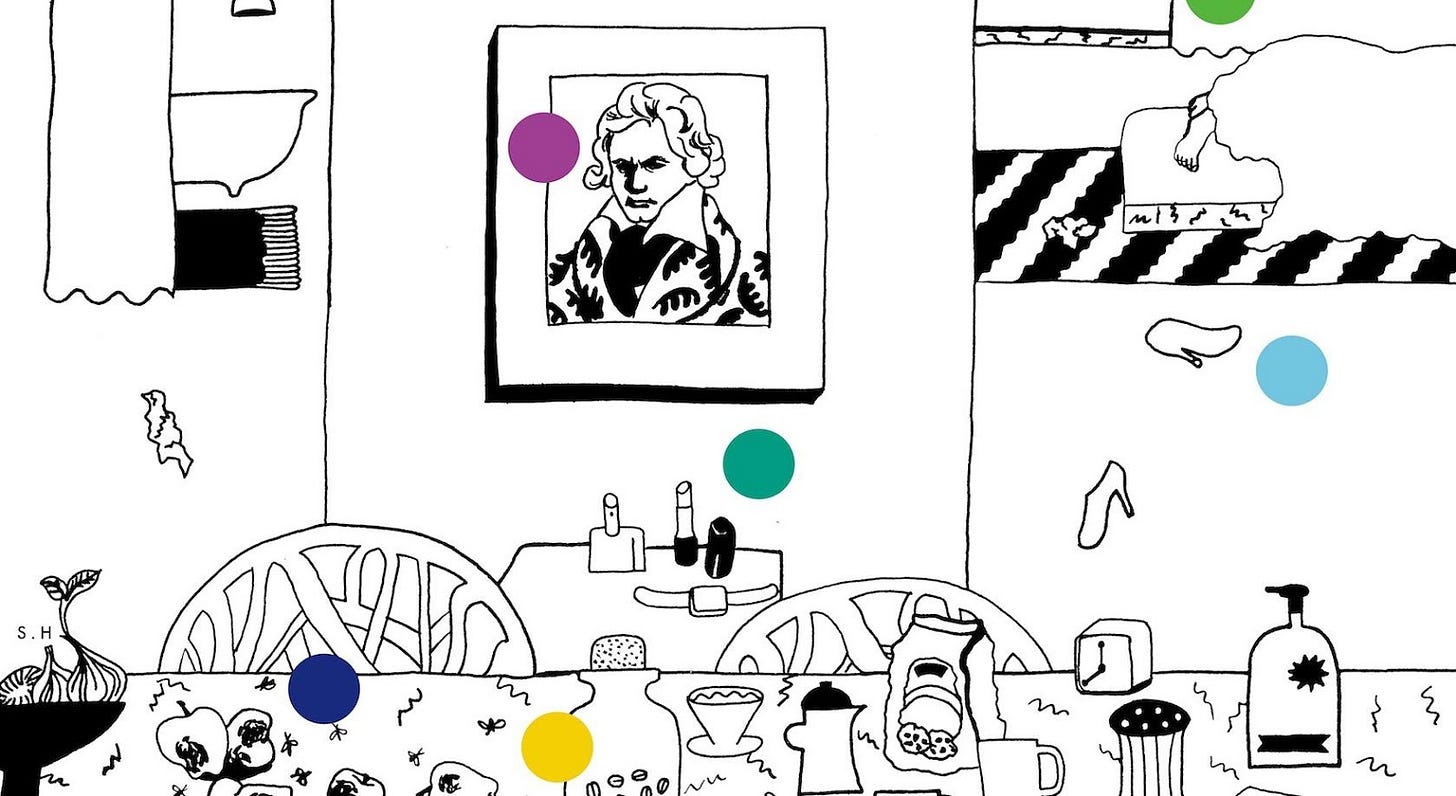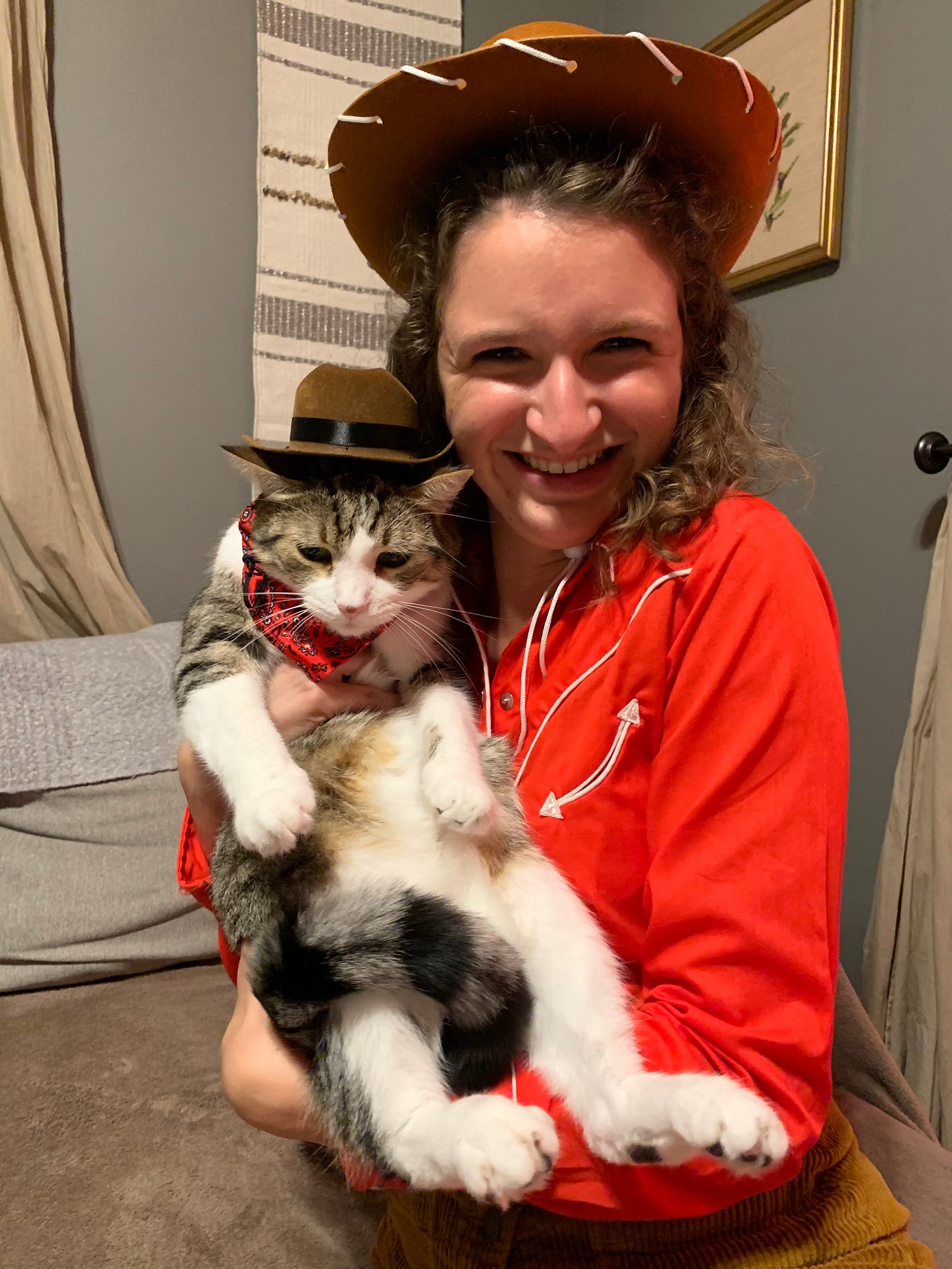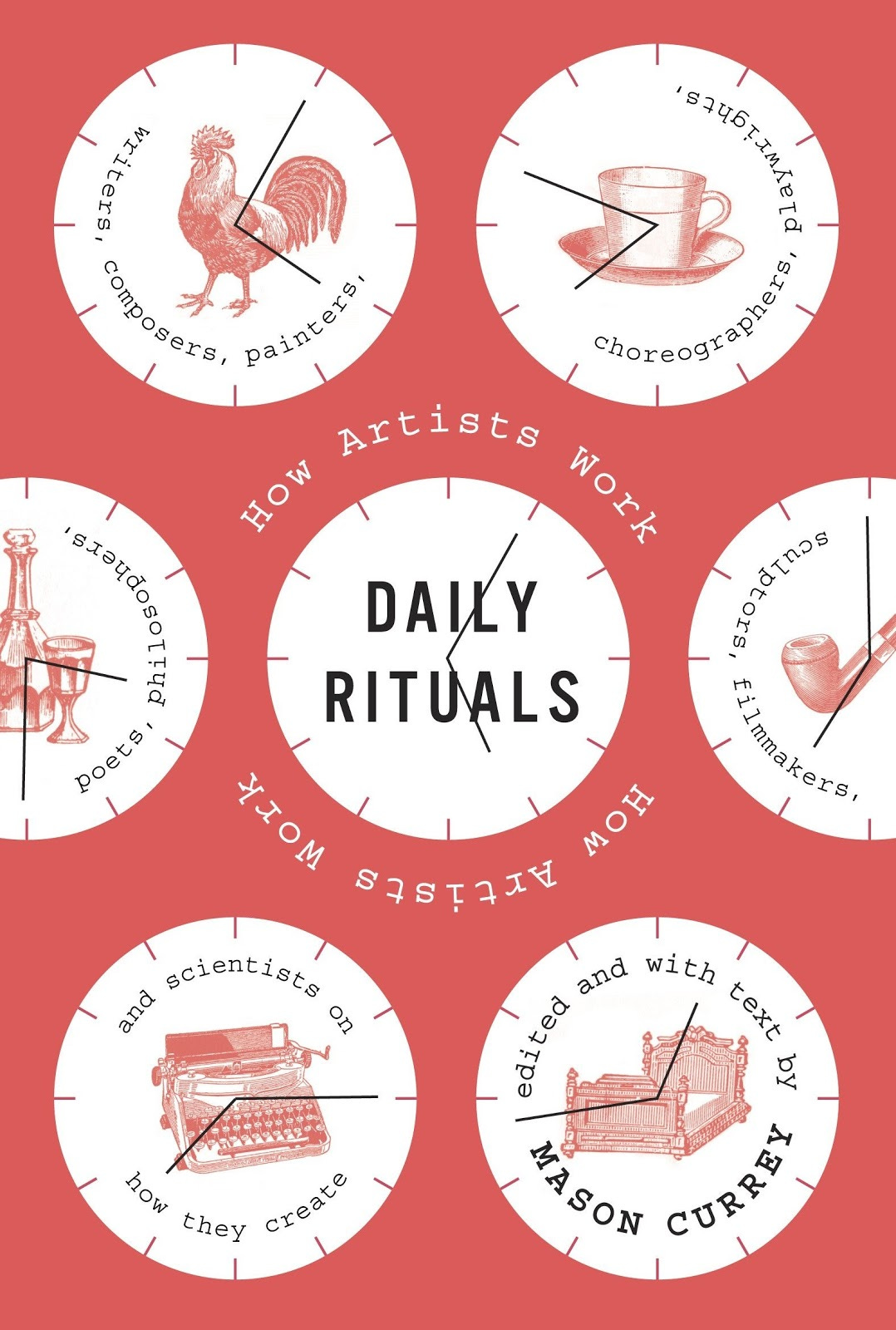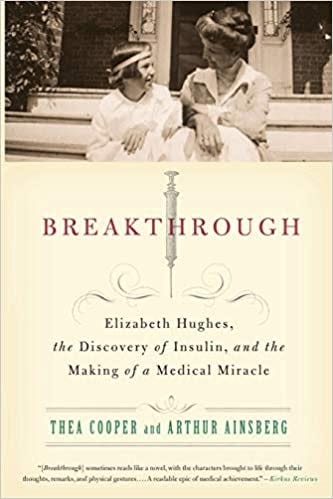Balance Writing with the Rest of Life
Mason Currey has studied hundreds of artists’ creative routines. He wants to help you find yours.
If you’ve been reading this newsletter for a while, you know by now that I love to geek out about the creative process. You can imagine my excitement when I got to interview Mason Currey, author of Daily Rituals: How Artists Work and Daily Rituals: Women at Work, for today’s issue!
In addition to writing two of my all-time favorite books on the creative process, Mason also happens to curate my faaaaaavorite email newsletter, Subtle Maneuvers, which provides practical wisdom on maintaining a fulfilling creative life. Finding it in my inbox is consistently the best part of every Monday.
Since Mason has studied the routines and habits of hundreds of artists, I asked him about his observations on balancing writing with the rest of life—a skill that continues to elude me.
What are the most significant patterns you’ve noticed among the subset of artists who manage to maintain some semblance of a work/life balance?
The most encouraging pattern I noticed is that, even though a lot of famous artists and intellectuals tended to be monomaniacal workaholic types (“art monsters,” in Jenny Offill’s phrase), a large subset of the figures I studied actually didn’t work super long hours. For many of them, the sweet spot was about 4–6 hours of focused work per day. Any more than that was unproductive or even counterproductive. Jean-Paul Sartre said, “One can be very fertile without having to work too much. Three hours in the morning, three hours in the evening. This is my only rule.”
It’s a good rule. And writers in particular tend to be able to get by on a half-day’s work, or less. Anthony Trollope wrote: “All those I think who have lived as literary men,—working daily as literary labourers,—will agree with me that three hours a day will produce as much as a man ought to write.”
Martin Amis has said that he thinks “most writers would be very happy with two hours of concentrated work.” And Gertrude Stein said that she was never able to write much more than half an hour a day—but, she added, “If you write a half hour a day it makes a lot of writing year by year.”
Not surprisingly, those writers and artists who embraced the power of short increments of daily work also tended to be the ones with decent work/life balances.
How do you maintain your own writing/life balance?
One thing that helps is that I have zero brainpower in the evening, so I almost never try to work after about 6:00 PM; there’s just no point. That creates some balance. My wife and I pretty much always have dinner together and then do something relaxing like watch a TV show. (Or in normal times we might go out!)
Having a dog helps too! Ours has to go out four times a day, and he needs daily play time and snug time, so that prevents me from just sitting in front of the computer monitor all day.
Also, my writing projects tend to be based on a lot of research—going through biographies, interviews, letters, diaries, etc.—and while I generally find the writing process to be pretty miserable, I love reading and find it highly restorative. So that creates a feeling of balance, even if maybe it’s work/work balance rather than work/life.

Many writers ask me for tips on how they can steal more time for their writing lives. What advice do you have for readers who want to claim more space for writing?
1. Start small: It’s better to try to be Gertrude Stein and write for 30 minutes a day—and actually keep this up—than emulate someone like Stephen King, who writes 2,000 words a day no matter how long it takes.
2. Seize the power of repetition: If at all possible, try to schedule your writing for the same time every day (or at least every weekday). There’s something magical about the repetition itself. As the Japanese novelist Haruki Murakami has said, “The repetition itself becomes the important thing; it’s a form of mesmerism. I mesmerize myself to reach a deeper state of mind.”
3. Use rituals to ease yourself into work: Virginia Woolf talked about “that very shy and illusive spirit, the imagination.” I think you can court that spirit by doing something ritualistic, like making a cup of coffee or tea in a certain way or donning a certain writing wardrobe. It sounds silly but I think these things really do help with the process of “mesmerism” that Murakami mentions. The state of mind required for writing well is a fragile, slippery thing, and you need to sort of sidle up to it. As the painter Grace Hartigan once wrote in her journal, “Art cannot be seized head on, it must be stalked, it is elusive.”
Finally, I recommend that people embrace an experimental approach to all of this. Writers are supposed to be creative people—get creative! If carving out an hour of butt-in-chair time just isn’t working for you, you could go for a walk or a drive and dictate your writing into your smartphone. If you’re having trouble finding privacy in your home, you could try writing on a park bench or even in a beach tent in your backyard. My Daily Rituals books are full of examples of writers doing stuff that seems bizarre or eccentric—but it worked for them. So don’t be afraid to embrace your eccentric side.
Enjoyed this interview? Buy Mason’s books and subscribe to his newsletter!
How do you balance writing with the rest of life?
“I choose writing when I can. Hate to pull the #MomCard, but at this point, writing can never again be my very first priority (even when I desperately want it to be), so I have to push myself to take the time when it's available, while refraining from beating myself up when I don't get it done.” —Alison
“I've stopped considering writing time as ‘me time’ or ‘personal time.’ It sounds silly because it's something I love, but it's helped me prioritize writing ahead of my actual ‘me time,’ and make more space for other things that fuel me creatively (cooking, socializing, etc). Sometimes ‘personal time’ is the first thing that gets cut from a busy week, but now that writing isn't a part of that, I always have time for it.” —Mara
“I have not been able to completely disengage from thinking of writing as a fruitless indulgence which means I'm not in balance. I squirrel away my ideas until I'm at risk of losing them and then put them to paper in fits and starts.” —Rebecca
“I try to envision my life as a series of concentric circles, and focus my energy accordingly. At the center, in the most important spot, is my mental and physical health; next, my friends, family, partner, and pets; then, my writing; next, my work/day jobs; lastly, everything else. It helps me prioritize my time and remind myself of where I want to be in the future.” —Caitlin
Tell me about your writing process in my reader questionnaire!
Really Digging This
Here’s what I’ve been reading and loving lately.
I finally finally finally read The Hitchhiker’s Guide to the Galaxy! It’s one of my husband’s all-time favorites, and we listened to the audiobook (narrated by Stephen Fry!) on our drive to the mountains of North Carolina. It had me in stitches the whole way.
I’m not a big history reader, but I really enjoyed the book I just finished on the discovery of insulin, Breakthrough: Elizabeth Hughes, the Discovery of Insulin, and the Making of a Medical Miracle. Did you know that Frederick Banting, the scientist who discovered insulin, sold the patent for just $1, claiming that insulin belonged to the world, not to him? The authors took great care crafting this fascinating narrative, weaving the stories of the lives of patients, scientists, and other early-20th century stakeholders.
Interview with Cambridge Common Writers
The lovely people at Cambridge Common Writers asked Michael Lowenthal to interview me for their blog! We talked about post-MFA life, my current novel project, this very newsletter, and much more. You can read it here!
Tell me about your lonely victories.
“I finally submitted my first manuscript to a couple of first-book contests (despite my dislike of the contest model that dominates poetry publishing… those reading fees can add up fast...)” —Michael
Share your own lonely victories with me in my reader questionnaire!

Lonely Victories is a labor of love—one that involves a lot of caffeine. You can support my work by tipping me for coffee, shopping my Bookshop.org affiliate page, or sharing this issue with a friend! Every little bit helps.
Special thanks to Aysha Miskin for designing the banner image for this newsletter and to Becca Wucker for editing this issue.
Learn more about my work at my website, and while you’re at it, come say hi on Instagram and Twitter.
“Writing alone can give you a very deep sense of satisfaction and lonely victory.” —Greta Gerwig












